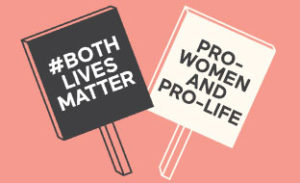Some babies do not develop the way most of us do. A whole range of medical conditions, including physical and mental disabilities, can begin to unfold as the baby develops in the womb. Some conditions are considered medically minor, such as a cleft lip, while others can be so serious that the baby may not survive up to term. Scientific developments now mean that testing unborn babies for anomalies and disabilities is routine. When the purpose is to treat the unborn child and to help the woman and family prepare for life with their child, these tests can be beneficial. However, in countries where legislation allows for abortion specifically for disability and/or non-specific reasons, abortion becomes common and normalised in cases of many disabilities. For example, up to nine out of ten babies in Great Britain are aborted when Down’s syndrome (Trisomy 21) is detected.
It is difficult to see this as anything other than disability discrimination – something that would be considered unacceptable at any other time. In these instances, screening can become a means of ‘quality control’ and a threshold for life.
Tragically some parents are told during pregnancy that their baby is ill and depending on the medical condition will pass away in the womb or live only briefly after birth. Such diagnoses can devastate mothers, fathers and their families. In a small number of cases some babies are misdiagnosed, which brings with it another devastating scenario. In other cases, some are at the very mild end of the spectrum of the medical condition concerned. These babies and their families deserve to be treated, spoken of and cared for with dignity regardless of any diagnosis. The term ‘fatal fetal abnormality’ may have some public recognition but no agreed medical or legal meaning. The term ‘life-limiting condition” which may prove fatal is consistent with international standards on perinatal palliative care.
Creating legislation to allow abortion in cases of life-limiting disabilities presents complex ethical challenges and poses significant legal and medical complexities. These abortions do not demonstrate the best care for the unborn baby, or often the mother, and can lead to discrimination on the grounds of disability. Abortion does not solve the problem for the unborn child or mother. It is not a treatment for tragedy. In these moments, we empathise with the entire family – including the mother and unborn child. We are working to ensure that women facing these challenging circumstances receive the best support services and personal pathways of care, including perinatal hospice care and ongoing support services for the child’s lifetime. Parents in these situations often talk about how important this support is, however, tragic the diagnosis and however short the time they have with their child.
Sources:
https://www.gov.uk/government/statistics/abortion-statistics-for-england-and-wales-2021
https://dontscreenusout.org/
elcpresentation.pdf (everylifecounts.ie)

